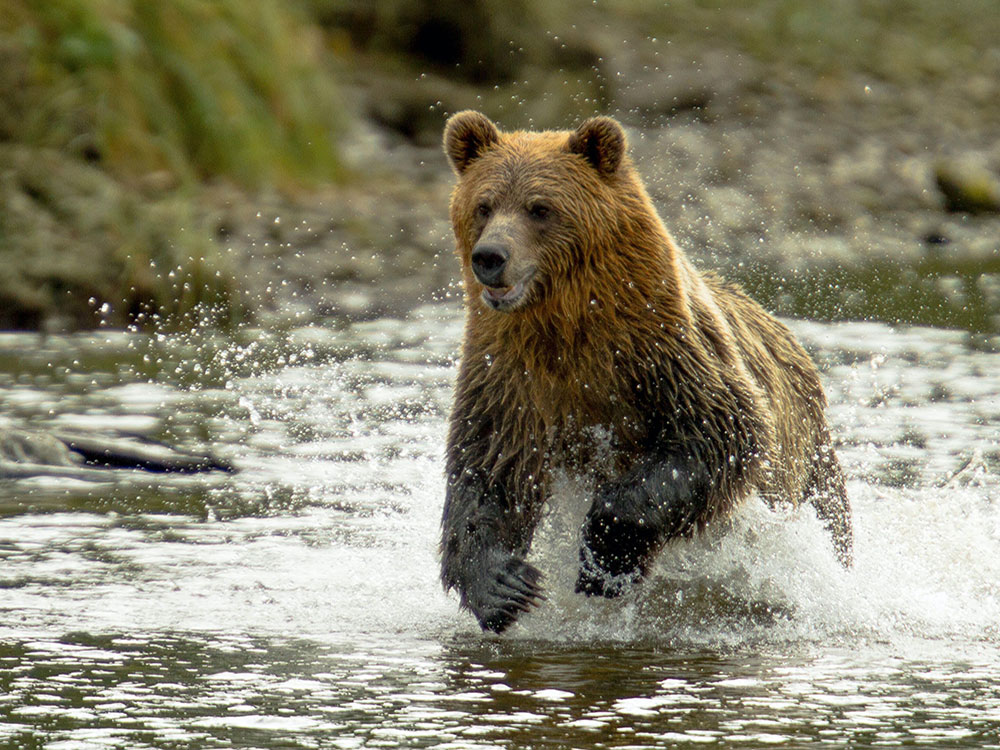The British Columbia government doesn’t intend to reopen trophy hunting of grizzly bears, said Nathan Cullen, minister of water, land and resource stewardship.
“I know those fears were there, but they’re not materializing for us as a government,” said Cullen, who represents the Stikine constituency in northern B.C.
In mid-July the provincial government opened a public engagement process on a 75-page draft Grizzly Bear Stewardship Framework. It has since extended the comment period to the end of October.
Last week Cullen became responsible for that engagement process as part of a significant transfer of powers from the Forests Ministry.
“There was never an intent within those consultations to contemplate reopening up the hunt,” Cullen said. “I know people were concerned about that, but this was a consultation effort better to engage with people that are interested from all sides.”
He stressed that out of respect for the process he doesn’t want to prejudge the result. “We’ll let the consultations run their course and we’ll see what comes out of it in terms of what people are hearing.”
The province ended the commercial grizzly bear hunt in 2017 a few months after the NDP formed the government thanks to an agreement with BC Green Party MLAs.
The draft stewardship plan said there are some 26,000 grizzly bears in Canada and they have been listed as a species of special concern under the Species at Risk Act since 2018. About half of the grizzly bears in Canada are in B.C.
The closure of the hunt was not done because of a conservation concern, the document said. “Rather it was largely a reflection of many British Columbians’ ethical or moral opposition towards grizzly bear hunting. Both the hunt, and the closure of the hunt, continue to generate strong reactions and emotions among the public in B.C. and beyond.”
It noted that while some First Nations “have a deep understanding that grizzly bears should not be hunted” and should be undisturbed by humans, others have always hunted grizzly bears and continue to do so, a right recognized and respected by the province.
“There are also Indigenous communities that have an economic interest in guide outfitting, and grizzly bear hunting,” it said, noting that closure of the hunt had a negative economic impact on some communities and a positive one on others, such as in coastal areas where there are opportunities for bear viewing.
“Some nations have expressed interest in reinstating a licensed hunt to provide a source of local income,” it said. “Should licensed hunting be considered in future, it would require a more detailed and focused review of Indigenous and non-Indigenous perspectives, science, and policy (including population objectives, cumulative effects, and threat mitigation) than is contemplated in this document.”
The BC Wildlife Federation, an organization that advocates for hunters, has been pressing for science-based grizzly bear management and a reopened hunt.
Earlier in October an open letter from a coalition of organizations, conservationists, scientists and businesses reminded the government that nearly 80 per cent of British Columbians supported closing the hunt in 2017.
“Closing the hunt was one of the best wildlife decisions the B.C. government has made, and reopening it to licensed hunters would be one of its worst,” the letter said, “and one that will be as hugely offensive to the general public, as to the undersigned organizations and individuals.”
The public engagement process is open until Tuesday. ![]()
Read more: Rights + Justice, BC Politics, Environment
















Tyee Commenting Guidelines
Comments that violate guidelines risk being deleted, and violations may result in a temporary or permanent user ban. Maintain the spirit of good conversation to stay in the discussion and be patient with moderators. Comments are reviewed regularly but not in real time.
Do:
Do not: